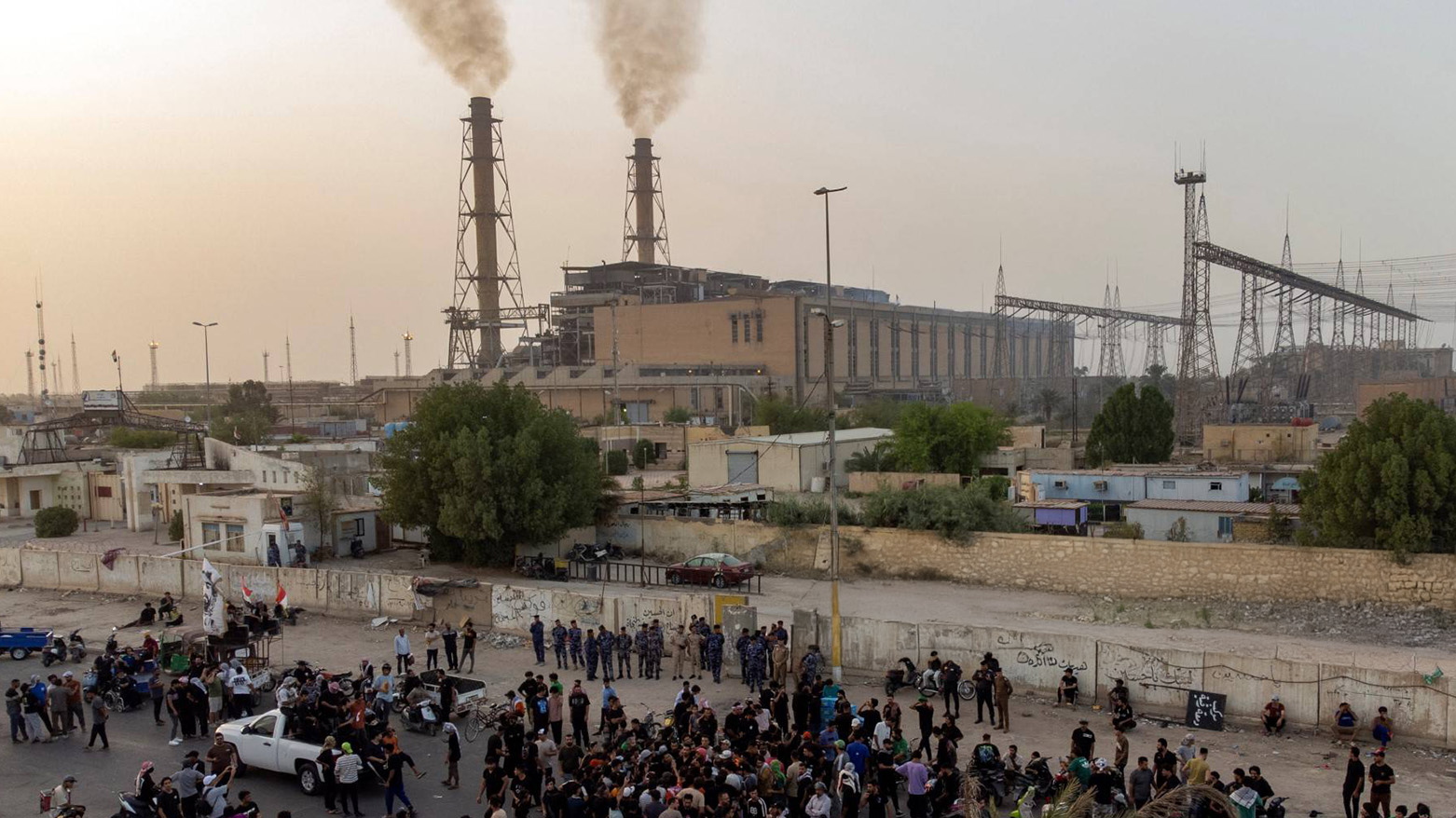Iraq Faces Major Power Shortages as Iranian Gas, Electricity Supplies Halt
Despite being recognized as a key player in the global energy sector, Iraq remains unable to generate enough electricity to meet its domestic needs.

ERBIL (Kurdistan24) – Iraq is grappling with a severe energy crisis following a significant reduction in electricity supply due to the suspension of gas and power imports from Iran. The Federal Ministry of Electricity has confirmed that the country has lost approximately 20,000 megawatts of electricity as a result, exacerbating an already strained power sector and raising concerns about meeting domestic energy demands.
Despite being recognized as a key player in the global energy sector, Iraq remains unable to generate enough electricity to meet its domestic needs.
The country heavily relies on Iranian imports to cover its electricity and gas shortfalls. However, according to the Washington Institute for Near East Policy, Iraq is now closer than ever to achieving self-sufficiency in energy production and has sought support from the United States to further develop its capabilities.
The goal is to improve infrastructure and ensure sufficient electricity supply for the summer of 2025, when demand is expected to peak.
The Washington Institute’s latest report highlights that while Iraq is striving to increase domestic power production, its efforts will still fall short of fully addressing the country's growing energy needs. Historically, Iran supplied approximately 40 percent of Iraq’s electricity, including 1.2 gigawatts (GW) of direct electricity exports and gas imports that facilitated the generation of an additional 8.8 GW.
However, recent economic struggles have led Tehran to cut two-thirds of its electricity exports and 85% of its gas supplies to Iraq. This has severely impacted Iraq’s energy infrastructure and raised fears of extended blackouts.
Iraq's electricity grid requires at least 50,000 megawatts to function efficiently during the peak summer months, yet the country is currently operating far below that threshold. Compounding the crisis, the Biden administration’s last 120-day sanctions waiver allowing Iranian energy exports to Iraq expired on March 7, 2025.
The Trump administration, through National Security Presidential Memorandum 2 (NSPM-2), has indicated it will not renew the waivers, citing the need for Iraq to become energy independent. This decision aligns with Washington’s broader strategy to exert maximum pressure on Tehran while supporting Iraq’s transition toward self-reliance in energy.
While Iraq remains vulnerable to further disruptions, experts believe that the country could significantly reduce its dependence on Iranian energy by accelerating the transition to alternative fuel sources.
Reports indicate that if Iraq were to prepare properly, as much as 8.1 GW of the 8.8 GW previously generated using Iranian gas could be replaced with domestic liquid fuel supplies.
One of the obstacles in achieving this shift, however, is the influence of Iran-backed militias, who have reportedly diverted fuel oil supplies for smuggling operations rather than domestic energy needs.
In response to these challenges, Iraq is engaging with international partners to expand its energy capabilities.
The government has initiated several projects, including agreements with Saudi Arabia to import electricity, the deployment of modular power generation barges, and the development of LNG import facilities along Iraq’s coastline.
TotalEnergies, in partnership with QatarEnergy, has also begun constructing a gas processing plant and a large-scale solar power project, which are expected to contribute significantly to Iraq’s energy security.
As the summer months approach and demand surges, Iraq faces a critical period in its pursuit of energy independence. The expiration of U.S. sanctions waivers on Iranian energy, combined with Tehran’s own economic struggles, is forcing Baghdad to accelerate efforts to enhance its power infrastructure.
While challenges remain, the push for energy self-sufficiency marks a pivotal moment in Iraq’s long-term strategy to break free from Iranian dependence and secure a stable energy future for its citizens.